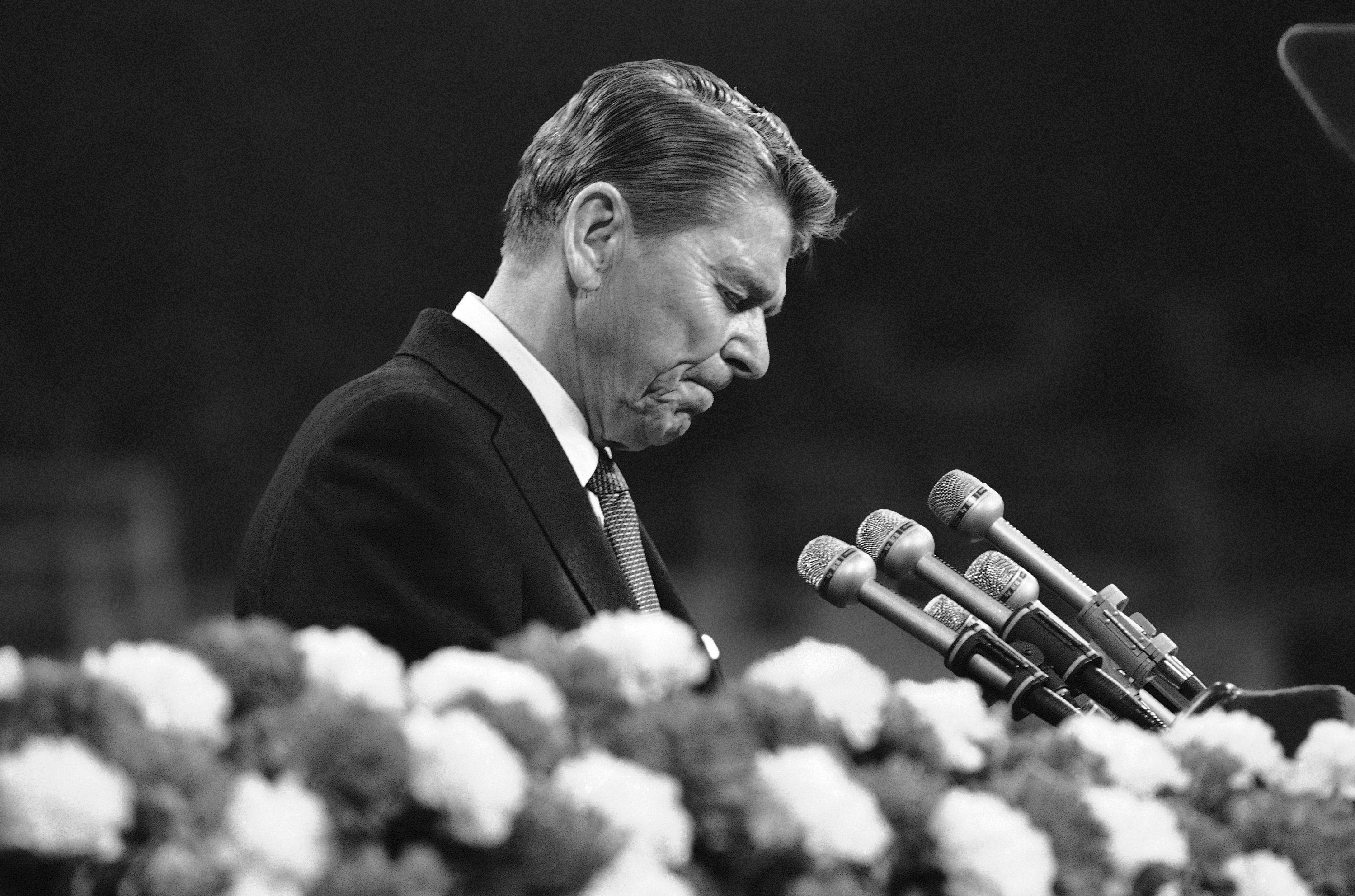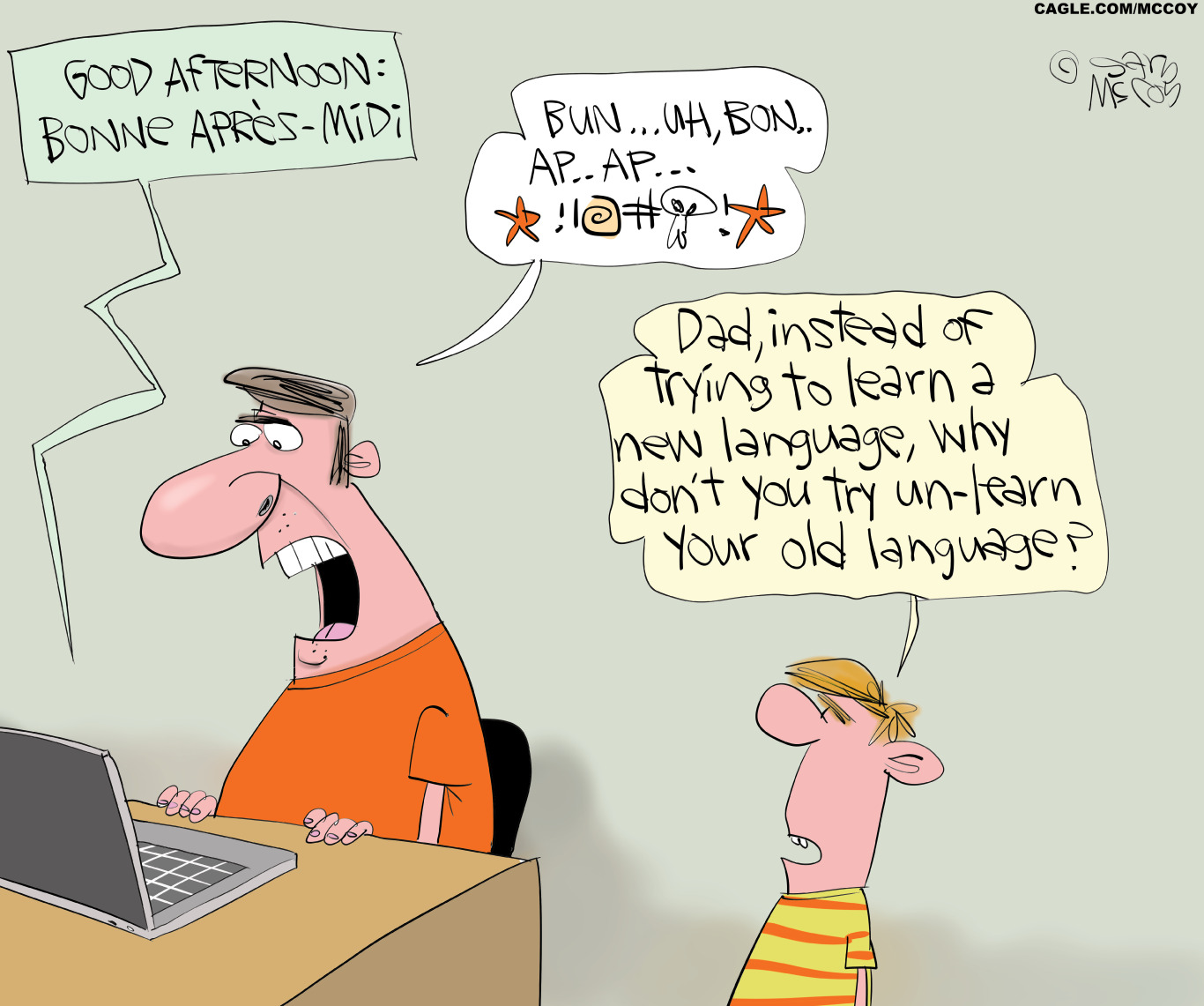A requiem for American conservatism
A party led by Donald Trump can never be a conservative party, because it will be a party led by a crude, loutish vulgarian


By far the most frequent criticism hurled at Donald Trump by the dwindling number of recalcitrant #NeverTrump Republicans is that he's not a real conservative. This nearly always means that he's unreliable on — and sometimes explicitly opposed to — various policy goals that have been central to the conservative movement since Ronald Reagan first won the White House 36 years ago.
Almost as frequently, these conservative Trump critics claim, against all plausibility, that the Republican nominee is actually a liberal. You know, like all those liberals who favor closing the nation's borders, deporting millions of immigrants, banning Muslims from entering the United States, ending free trade, withdrawing from NATO, and calling Miss Universe a fat slob.
I get why these anti-Trump Republicans keep insisting that Trump's policy heresies make him something other than a conservative: It keeps their brand pure. But it's also oddly ahistorical.
The Week
Escape your echo chamber. Get the facts behind the news, plus analysis from multiple perspectives.

Sign up for The Week's Free Newsletters
From our morning news briefing to a weekly Good News Newsletter, get the best of The Week delivered directly to your inbox.
From our morning news briefing to a weekly Good News Newsletter, get the best of The Week delivered directly to your inbox.
What "conservatism" implies for policy can change, and has changed, quite a bit over time. The fact that for the past few decades it's meant tax cuts, free markets, hostility to regulation, a hawkish foreign policy, opposition to abortion rights, and a defense of "family values" is historically contingent and more than a little arbitrary. It's also unstable, since certain aspects of the ideology (free markets and hostility to regulation) stand in considerable tension with others (the defense of traditional moral views).
It's entirely conceivable that the Republican Party will become (and perhaps already has become) a party of Trumpist populism, defined as support for deep tax cuts, hostility to regulation, opposition to free trade and immigration, and a defense of a ruthlessly go-it-alone foreign policy. Could conservatism also be redefined, for political purposes, to mean these things? Given Reagan's crucial role in forging a form of conservatism that warmly embraced Thomas Paine's wildly unconservative dictum that "we have it in our power to begin the world over again," it's hard to see why not.
But there is at least one respect in which Trump and his movement could never be considered conservative. This is the aspect of conservatism that has persisted down through the decades and the centuries from Edmund Burke to Reagan and beyond. It's this aspect of conservatism that appealed greatly to me as a young man, and that still maintains a grip on my soul to this day, long after I began voting for Democrats and defending (most of) their policies. It's also what contributes to Trump's persistent difficulties with Mormons — the most consistently and authentically conservative voting bloc in the country.
This is the conservatism of forms and formality, order, modesty, nobility, moral rectitude, private and public honor, and steadfast adherence to standards of right conduct and traditional restraints. Trumpist populism, with its roots in the sleaziest side of tabloid culture, including the world of reality TV in which Trump honed his public persona, could never be mistaken for conservative in this rarified sense.
A free daily email with the biggest news stories of the day – and the best features from TheWeek.com
To get a sense for why, let me share my experience at a dinner of conservative writers and intellectuals in 1999, shortly after Bill Clinton managed to survive the first presidential impeachment in over 130 years. There was genuine sorrow in the room, mainly about what Clinton had done to debase the office of the presidency. Everyone sitting around the table worried about young people, in many cases their own children, growing up in a world in which the married president of the United States had engaged in such sordid acts with a much-younger intern in the Oval Office and lied about it under oath — and in which all of the scummy details had been publicized for all to hear and know. It was a moment, they thought, of national disgrace.
My response to these laments was decidedly mixed. On the one hand, as the imperfect conservative I was even then, I thought the reactions overwrought. I never supported the impeachment, and I didn’t feel the same weight of despair about the outcome. I was mainly relieved that the effort to remove Clinton from office had failed.
But I nonetheless admired and respected the moral seriousness of my dinner companions. They believed in high standards, strove to live up to them in their own lives, and felt genuine disgust and dejection when they witnessed their country’s noblest institutions degraded by ignoble behavior.
That, for me, will always be the core of conservatism. Not support for limited government or tax cuts. Not favoring open markets. Not fighting for higher defense budgets. But standing for a politics conducted in an elevated key, emphasizing virtue, honor, moral rectitude, earnestness, devotion to principle and integrity, deference toward received authorities and traditions — and speaking of these ideals without irony or shame.
It is in this sense that a party led by Donald Trump can never be a conservative party, because it will be a party led by a crude, loutish vulgarian — a man who called an opponent a "p--sy" at a public rally and bragged about the size of his manhood during a nationally televised debate; who has a long track record of treating women as objects to be consumed and then discarded like trash; who lies blatantly, constantly, and shamelessly; who views charity solely as a vehicle for self-promotion and self-enrichment; who viciously and relentlessly insults and attacks anyone who dares to criticize him; who repeatedly demonstrates open contempt for the norms and institutions of American democracy.
The list of Trump's flagrantly unconservative words and deeds is nearly endless. Indeed, Trump may be the most thoroughly and actively anti-conservative presidential candidate ever to get this close to the White House. That he's also running under the banner and with the institutional imprimatur of a political party that has considered itself conservatism's home base in the United States for most of the past four decades is truly remarkable and more than a little troubling.
One of the enduring truths taught by conservatives is that high things are exceedingly precious as well as fragile — and that once they have been defiled it can be extremely difficult, if not impossible, to restore them to their former glory.
That's why that roomful of conservatives 17 years ago was so mournful about President Clinton's behavior. It's also why no genuine conservative can support Donald Trump now. And why it's not at all clear whether a party and a country in which Trump could arise and come within striking distance of winning the White House is one with much of a place left for conservatism at all.
Damon Linker is a senior correspondent at TheWeek.com. He is also a former contributing editor at The New Republic and the author of The Theocons and The Religious Test.
-
 Political cartoons for January 4
Political cartoons for January 4Cartoons Sunday's political cartoons include a resolution to learn a new language, and new names in Hades and on battleships
-
 The ultimate films of 2025 by genre
The ultimate films of 2025 by genreThe Week Recommends From comedies to thrillers, documentaries to animations, 2025 featured some unforgettable film moments
-
 Political cartoons for January 3
Political cartoons for January 3Cartoons Saturday's political cartoons include citizen journalists, self-reflective AI, and Donald Trump's transparency
-
 Bari Weiss’ ‘60 Minutes’ scandal is about more than one report
Bari Weiss’ ‘60 Minutes’ scandal is about more than one reportIN THE SPOTLIGHT By blocking an approved segment on a controversial prison holding US deportees in El Salvador, the editor-in-chief of CBS News has become the main story
-
 Has Zohran Mamdani shown the Democrats how to win again?
Has Zohran Mamdani shown the Democrats how to win again?Today’s Big Question New York City mayoral election touted as victory for left-wing populists but moderate centrist wins elsewhere present more complex path for Democratic Party
-
 Millions turn out for anti-Trump ‘No Kings’ rallies
Millions turn out for anti-Trump ‘No Kings’ ralliesSpeed Read An estimated 7 million people participated, 2 million more than at the first ‘No Kings’ protest in June
-
 Ghislaine Maxwell: angling for a Trump pardon
Ghislaine Maxwell: angling for a Trump pardonTalking Point Convicted sex trafficker's testimony could shed new light on president's links to Jeffrey Epstein
-
 The last words and final moments of 40 presidents
The last words and final moments of 40 presidentsThe Explainer Some are eloquent quotes worthy of the holders of the highest office in the nation, and others... aren't
-
 The JFK files: the truth at last?
The JFK files: the truth at last?In The Spotlight More than 64,000 previously classified documents relating the 1963 assassination of John F. Kennedy have been released by the Trump administration
-
 'Seriously, not literally': how should the world take Donald Trump?
'Seriously, not literally': how should the world take Donald Trump?Today's big question White House rhetoric and reality look likely to become increasingly blurred
-
 Will Trump's 'madman' strategy pay off?
Will Trump's 'madman' strategy pay off?Today's Big Question Incoming US president likes to seem unpredictable but, this time round, world leaders could be wise to his playbook
